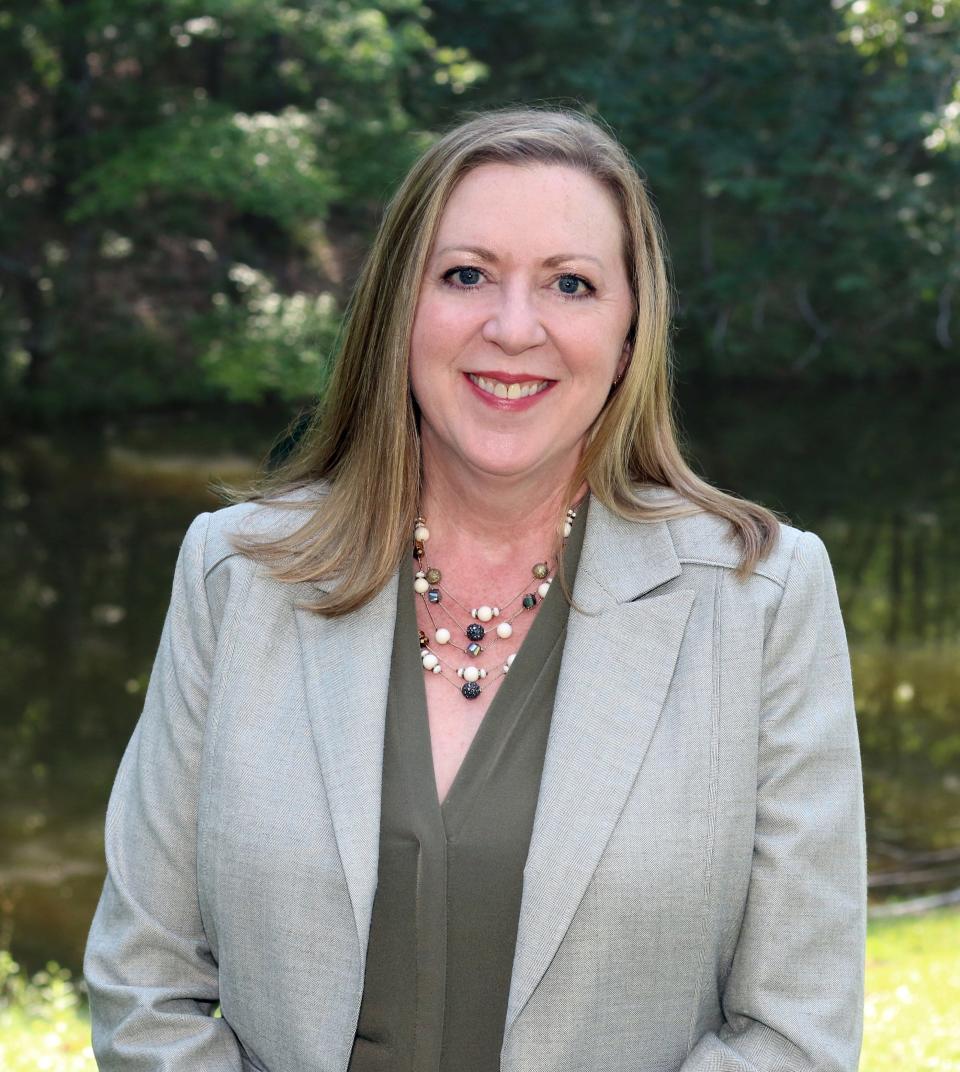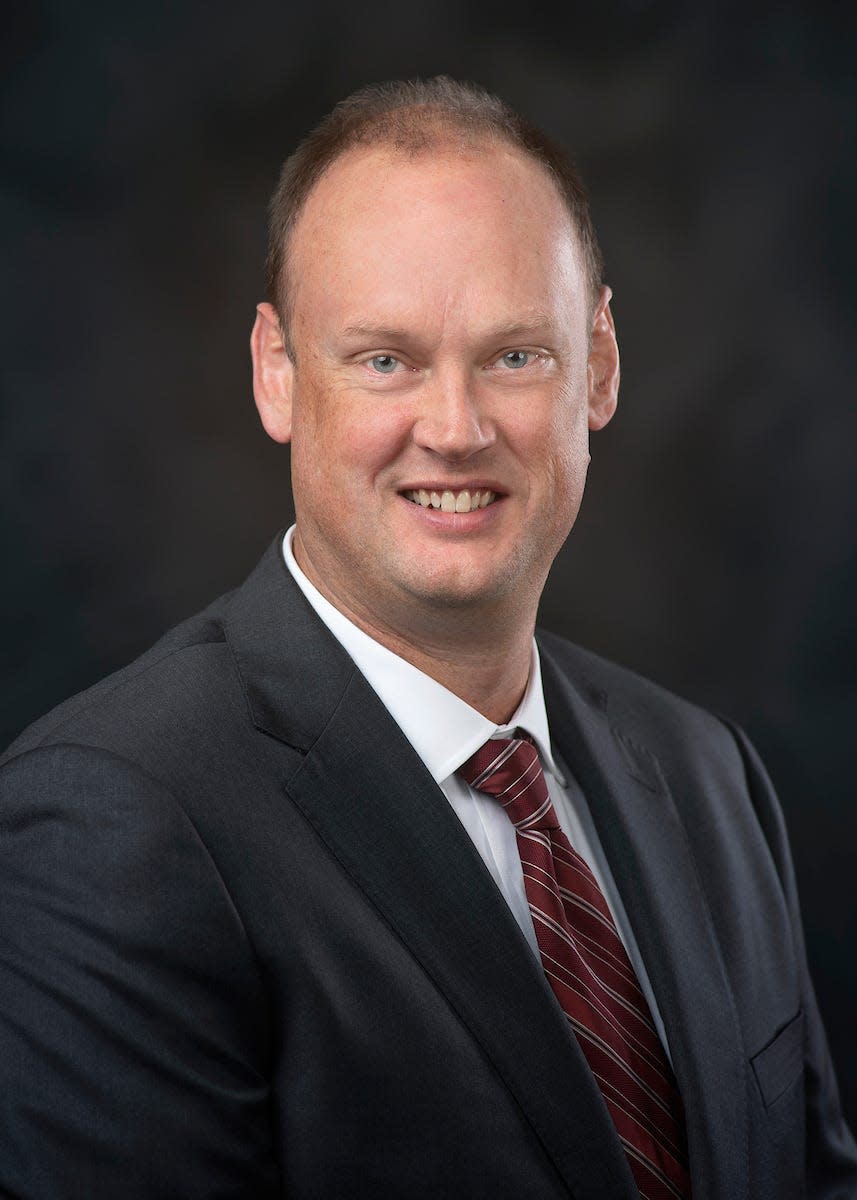New nursing master’s degree program at Mississippi State University-Meridian adds faculty
Mississippi State officials are welcoming four Meridian campus employees to the university’s new, Master of Science in Nursing entry licensure program, the first of its kind in the state, according to a press release from MSU.
"Currently under development, the 12-month accelerated program recently hired Mary Stewart as dean, now joined by faculty members Kayla Carr, Katherine Rigdon, Matthew Byrd and LaDaryl Watkins," the press release states.
MSU-Meridian Associate Vice President and Head of Campus Terry Dale Cruse said the local medical community wanted and supported the new innovative Master of Science in Nursing entry licensure program, according to the press release.
The program was made possible through a private donation from The Riley Foundation in Meridian, which has supported MSU over the past 20 years.

"Over time, the Riley Foundation has given MSU approximately $50 million," Cruse said. "The most recent donation towards the nursing program was just over $6 million.
"We are very excited about this program, which will help address a critical shortage in the state for nurses," Cruse said. "This program will allow those with a bachelor's degree to get a master of science and nursing. The program will individuals plug into critical areas and needs of the people of Mississippi. This support and backing from major hospitals and health systems in Meridian and surrounding communities cemented MSU's proposed accelerated program.
"The program will prepare college graduates holding non-nursing degrees for initial registered nurse licensure and direct entry route into a new career of nursing practice in hospitals and community settings."
MSU receives $4 million in NSF EPSCoR funding to study Mississippi Delta climate impacts
Mississippi State University is leading a $4 million, five-year National Science Foundation-funded effort to study climate change impacts in the Mississippi Delta and increase resilience among vulnerable populations, according to an MSU press release.
MSU officials said The MSU-led project is titled "An interdisciplinary program for Research, education, and Outreach on climate change and adaptive resilience in the Yazoo - Mississippi Delta," MSU officials said. The project includes MSU Geosciences faculty members Brian Williams; Christy Hyman and Fikriyah Winata; and Dean Hardy, assistant professor in the School of the Earth, Ocean and Environment at the University of South Carolina.

"The project, led by Professor Shrinidhi Ambinakudige in MSU's Department of Geosciences, is part of a new round of National Science Foundation Established Program to Stimulate Competitive Research (EPSCoR) Track-2 funding announced this week by the agency," the press release states. "The interdisciplinary team of researchers, educators and community partners will develop a climate model, study social vulnerability to environmental hazards and conduct a comprehensive study on climate impacts on health in the Delta region."
Ambinakudige said the results of the work would provide a road map of communities' risks and vulnerabilities to climate-related extreme events, such as the floods, droughts and tornadoes that commonly affect the Delta.
"This project also presents a great opportunity to increase climate literacy and promote workforce development opportunities related to geospatial technology through our partnerships with K-12 schools and community colleges," Ambinakudige said.
According to the press release, "Several MSU faculty members, the research teams include faculty from Mississippi Valley State University and the University of South Carolina MSU's capabilities in spatial modeling, computational meteorological modeling, climate-smart agriculture, health studies and community engagement will enhance project impacts, while MVSU brings experience working with community organizations on sustainable agriculture and health disparities and USC will conduct ethnographic research studies on vulnerabilities to climate change."
In addition to the co-principal investigators, MSU faculty members supporting the project include Boniface Fosu and Renee Clary in Geosciences, Raja Reddy in the Department of Plant and Soil Sciences, Northern Gulf Institute Deputy Director Jamese Sims and Jamie Dyer, interim dean of MSU's Interdisciplinary Program, MSU officials said.
NSF Director Sethuraman Panchanathan said, as evident from EPSCoR's impact, that investing in research infrastructure is a powerful catalyst for strengthening our nation's security, competitiveness and fostering groundbreaking scientific advancements.
"I'm thrilled to announce this year's EPSCoR Track-2 awards, which will strengthen community and regional efforts to understand the impacts of a changing climate and enhance the resilience of disproportionately affected communities," Panchanathan said. "By addressing these critical challenges and engaging with communities impacted by climate change, we have the potential to advance innovation and promote economic stability and recovery in EPSCoR jurisdictions and beyond."
MSU climate math experts calculate statistically sound data on declining snow cover
Mississippi State University faculty members and a national group of researchers have created new statistical methods needed to study declining snow cover and quantify changing climate patterns in the Northern Hemisphere, according to an MSU press release.
"The College of Arts and Sciences' Jamie Dyer, a professor of meteorology and climatology, and Jonathan Woody, an associate professor of mathematics and statistics, collaborated on the new study published in the Journal of Hydrometeorology analyzing snow cover data gathered from satellite flyovers between 1967 and 2021," the press release states.
According to the release, "The data was divided into grid sections for analysis by NOAA — the National Oceanic and Atmospheric Administration. In addition to the MSU researchers, the National Science Foundation-supported study included others from the universities of California-Santa Cruz, North Carolina at Chapel Hill, and North Florida."

Dyer, interim dean of interdisciplinary studies who joined the MSU faculty in 2005, said while these general snow cover patterns have been shown in other studies, using the methodology presented in this study allowed for much more substantial and statistically robust conclusions.
"As a result, the decreases in snow cover over the Northern Hemisphere can no longer be attributed to biases in the data or methodological approach, as many climate skeptics tend to cite in their arguments," Dyer said, an Atlanta, Georgia, native.
Of the grid sections researchers determined to be reliable, they found that snow cover is declining in nearly twice as many grids as it is advancing.
Dyer said that by utilizing statistics' expertise to perform a purely data-driven analysis, then interpreting and validating those results from climate experts, more robust conclusions can be made about patterns in the data.
"Such a multidisciplinary approach broadens the scope of such work and is critical to move climate science forward meaningfully," Dyer said.
For more details about MSU's College of Arts and Sciences, the Department of Mathematics and Statistics, or the Department of Geosciences, visit www.cas.msstate.edu, www.math.msstate.edu, or www.geosciences.msstate.edu.
This article originally appeared on Mississippi Clarion Ledger: MSU welcomes employees to the new nursing degree program.

